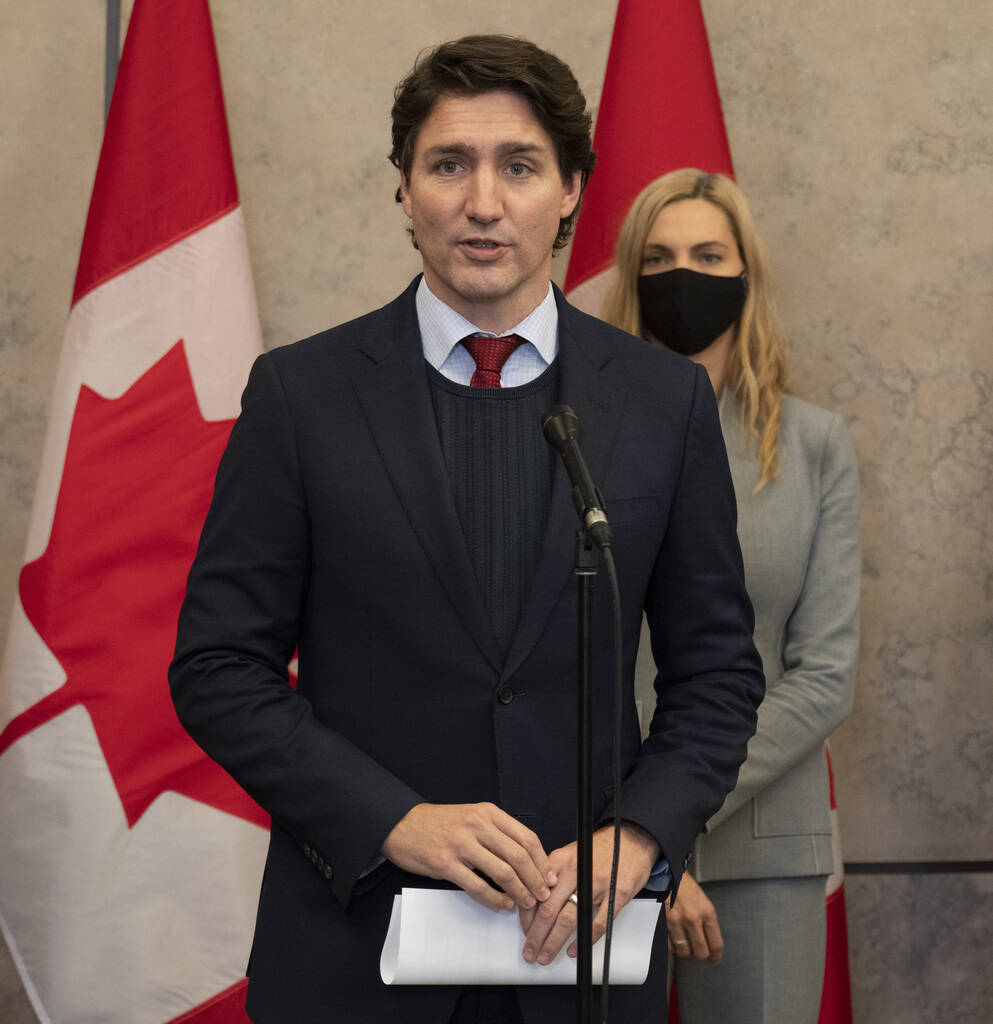Diplomatic boycott will have little impact
Read this article for free:
or
Already have an account? Log in here »
To continue reading, please subscribe:
Monthly Digital Subscription
$0 for the first 4 weeks*
- Enjoy unlimited reading on winnipegfreepress.com
- Read the E-Edition, our digital replica newspaper
- Access News Break, our award-winning app
- Play interactive puzzles
*No charge for 4 weeks then price increases to the regular rate of $19.00 plus GST every four weeks. Offer available to new and qualified returning subscribers only. Cancel any time.
Monthly Digital Subscription
$4.75/week*
- Enjoy unlimited reading on winnipegfreepress.com
- Read the E-Edition, our digital replica newspaper
- Access News Break, our award-winning app
- Play interactive puzzles
*Billed as $19 plus GST every four weeks. Cancel any time.
To continue reading, please subscribe:
Add Free Press access to your Brandon Sun subscription for only an additional
$1 for the first 4 weeks*
*Your next subscription payment will increase by $1.00 and you will be charged $16.99 plus GST for four weeks. After four weeks, your payment will increase to $23.99 plus GST every four weeks.
Read unlimited articles for free today:
or
Already have an account? Log in here »
Hey there, time traveller!
This article was published 17/12/2021 (1452 days ago), so information in it may no longer be current.
Boycotts have become as much an Olympic tradition as the lighting of the torch. Every four years, it seems, world-class athletes and their respective nations are forced to walk — or jump or swim or ski — the tenuous line between sport and international politics. The lead up to Beijing 2022 has been no different.
Earlier this month, Prime Minister Justin Trudeau joined politicians from several other countries in a diplomatic boycott of the winter games set to begin in the Chinese capital on Feb. 4. The host country is facing intense scrutiny for its human-rights record, most recently punctuated by allegations of crimes against humanity and genocide perpetrated against the Uyghur population and other Muslim ethnic groups. It feels very much like déjà vu.
Similar objections circulated ahead of the 2008 summer Olympics in Beijing — the country’s first time hosting the games. While China treated the event as a political and economic stepping-out, critics blasted the country for its repression of religious freedoms in Tibet and punitive treatment of dissenters, activists and journalists.
.jpg?w=1000)
In its efforts to present a bright, shiny image to the world, the communist country went to great lengths to stifle the unseemly parts of its society.
To combat Beijing’s poor air quality — something written about ad nauseam by foreign media — the government shut down factories and removed millions of cars from the road. Whole neighbourhoods were razed to make way for stadiums and arenas.
During its failed 2000 Olympic bid, it was discovered that the city’s chronic air pollution was improved by shutting off heat to apartments, office buildings and even a hospital in the middle of winter.
If China has demonstrated such unsportsmanlike conduct in the past, why has it again been given the opportunity to host one of the most prestigious events in the world? Therein lies the real issue.
Yes, diplomats can stay home and yes, politicians can — and should — denounce the host country’s human-rights record, but why are we repeating history in the first place? The International Olympic Committee has long attempted to separate sport from politics and, in doing so, has created a culture of delusion, wherein medals are more important than human atrocities.
Political neutrality is even outlined in the Olympic Charter. Last year, the IOC expanded its prohibition on protests within Olympic venues to include athlete activism in the form of “gestures of a political nature,” such as kneeling or fist-raising. Unfortunately, rose coloured policies don’t make the games any less political.
How host countries are chosen is political, how athletes — and residents — are treated is political, how the games are funded is political. To pretend otherwise is a disservice to everyone involved. The IOC needs to take responsibility for the nationalistic, show-must-go-on-at-all-costs fervour that surrounds the games.

The IOC also needs to take into consideration such issues as past and current human-rights abuses when vetting Olympic bids. Otherwise, the moral burden is placed squarely on the shoulders of individual nations and athletes who have been training their whole lives for the opportunity.
It’s good that Canada has joined others in a diplomatic boycott, but the move is unlikely to have much impact. While past calls to boycott Beijing drew attention to exploitation, they did little to change the circumstances for those suffering. The games went on and China was praised for its “spectacular” and “spellbinding” opening ceremony. Fourteen years later, with China poised to host another Olympics, we’re still discussing the same issues.
Instead of repeating history, the IOC needs to reframe its principles — for the sake of sport and everyone its events touch.










.jpg?h=215)